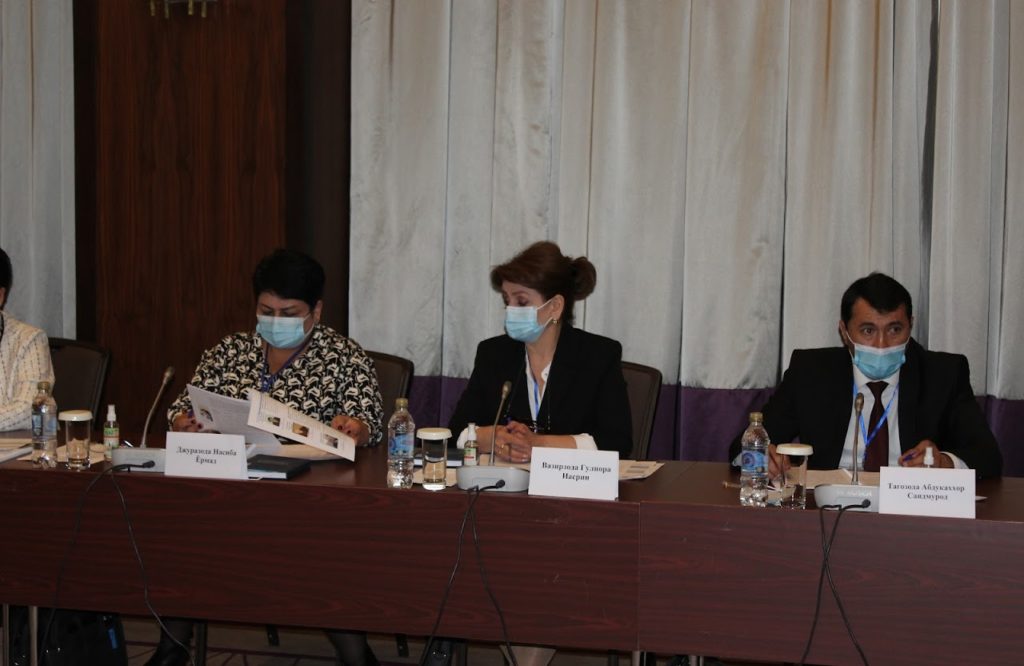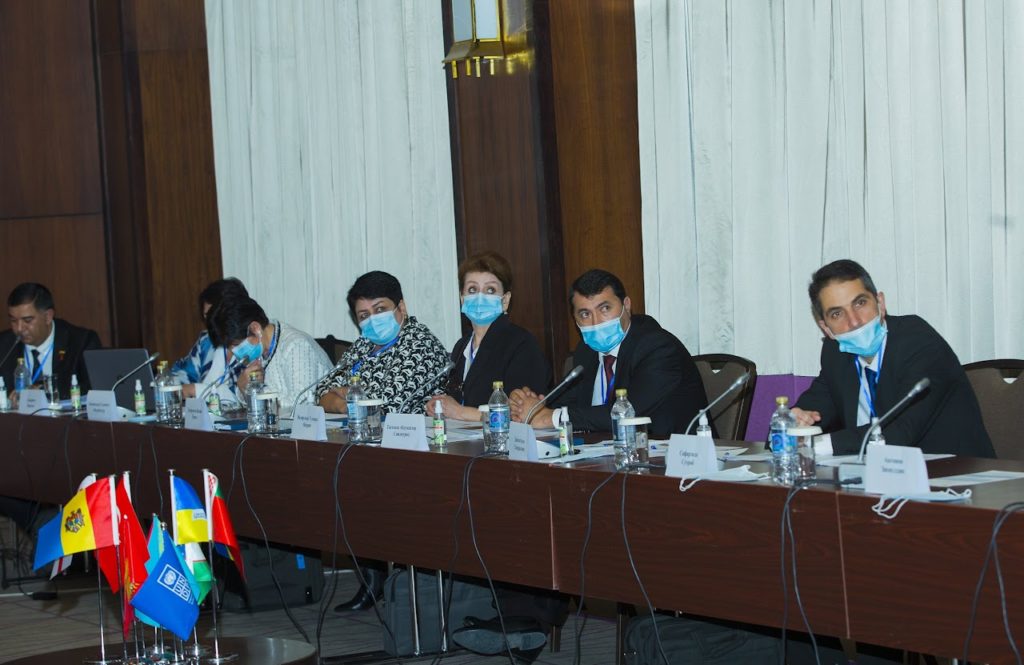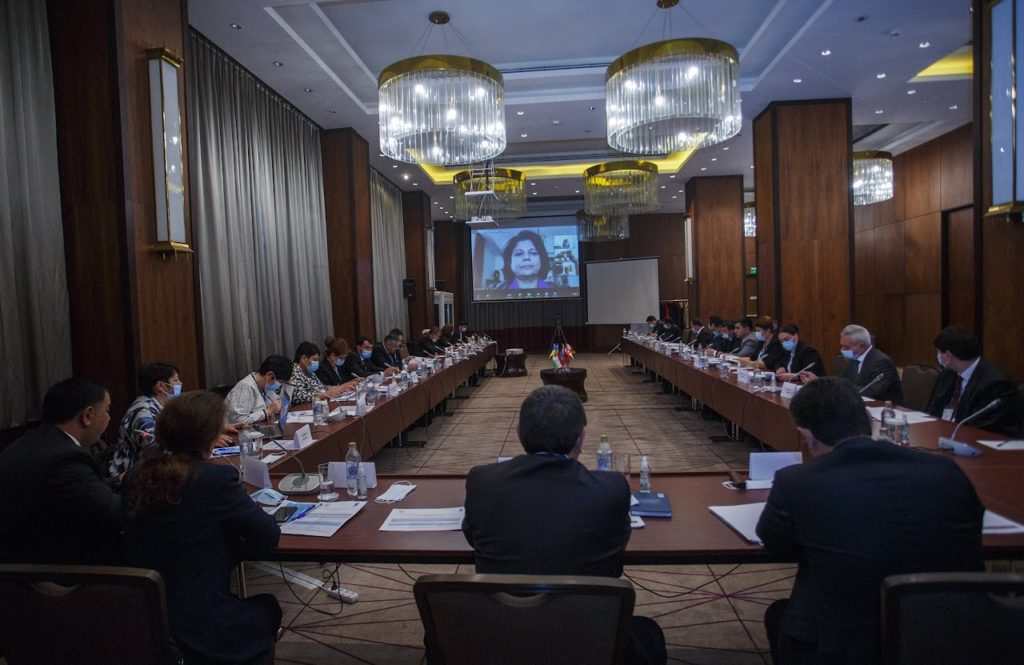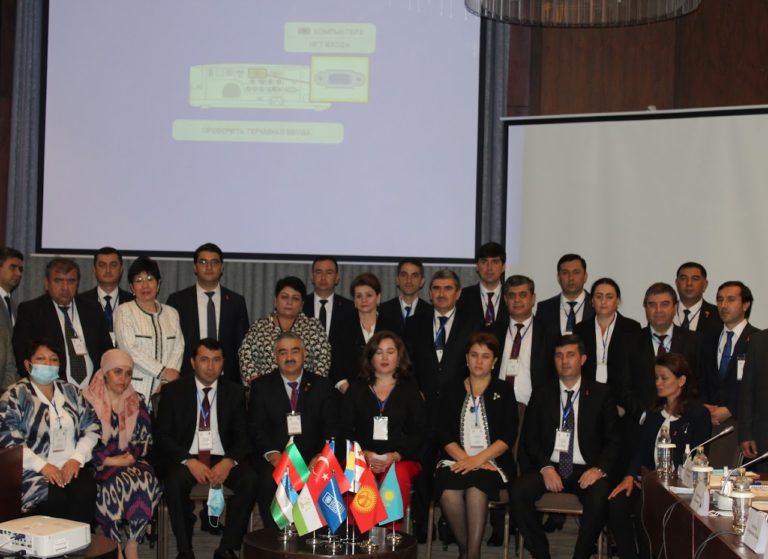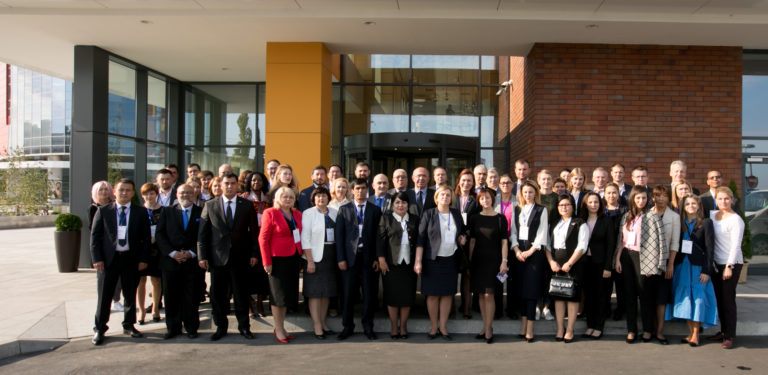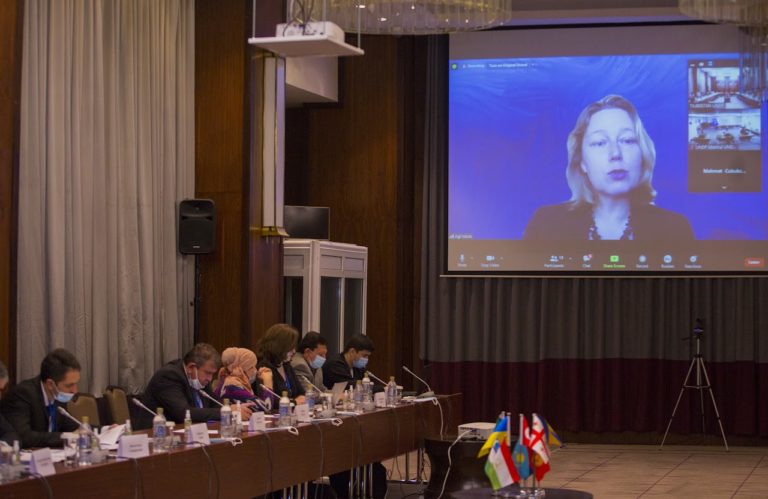
Third Meeting of the EECA Regional Judges’ Forum on HIV, Human Rights and the Law
11-12 November 2021 – Virtual/ Kyiv/ Bishkek/Dushanbe
The Third Meeting of the EECA Regional Judges’ Forum on HIV, Human Rights and the Law was held on 11 and 12 November 2021 in hybrid format – Forum participants from Tajikistan and Kyrgyzstan met face-to-face and other participants joined the event online. According to the EECA Regional Forum’s tradition, the annual meeting takes place in a different country of the region each year. This year’s event was hosted by Ukraine and organized by UNDP in partnership with the National School of Judges of Ukraine.
The event brought together over 70 judges from eight countries of the region (Albania, Georgia, Kazakhstan, Kyrgyzstan, Moldova, Tajikistan, Ukraine, and Uzbekistan), as well civil society organizations, experts, key population representatives, and UN agencies.
Building on the legacy of the Global Commission on HIV and the Law and its 2012 and 2018 Reports, as well as the outcomes of the first and second annual Forum Meetings, the Third Meeting, focused on 1.) further raising awareness of judges on issues related to HIV, key and vulnerable populations, 2.) supporting and expanding the regional platform for information and experience exchange on different aspects of adjudication of cases related to HIV and co-morbidities, as well as enhancing cooperation between the judiciaries and other state and non-state actors for better protection of human rights.
The first day of the EECA Regional Forum was dedicated to criminal matters, and the second day focused on a number of civic law topics. The event covered the following issues and sub-topics:
Day 1:
- Access of people living with HIV (PLHIV), affected by TB and key populations to justice in the context of the COVID-19 pandemic
- International standards and guidelines related to decriminalization of HIV transmission, exposure and non-disclosure (existing documents, their status, gaps)
- International experience with HIV decriminalization
- HIV status in criminal procedure
- Risk levels in the context of HIV criminalization and other offenses
Day 2:
- HIV-status in the context of civil litigation: access to justice
- Civil law and HIV:
- the right to confidentiality – enforcement mechanisms, claiming moral damage for disclosure of HIV-status
- claiming moral and material damage for HIV infection
- HIV and employment: labour disputes
- Family law and HIV:
- custody and adoption by people living with HIV
- the right to confidentiality
- HIV as a barrier to marriage and a ground for divorce.
Below you can find all meeting documents, including the concept note, agenda, list of participants, meeting report, as well as presentations and other materials.
